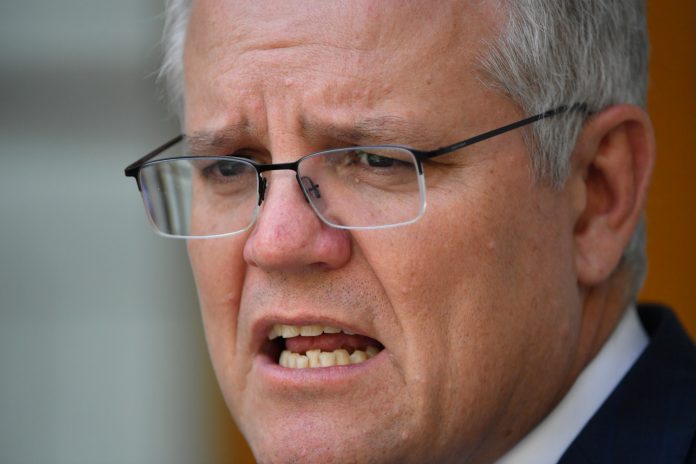The economic and health impacts of the coronavirus pandemic will be on the agenda of the final national cabinet meeting for the year.
Scott Morrison and state and territory leaders will set their priorities for 2021 on Friday, when they hold the final national cabinet meeting for the year.
The prime minister and premiers – meeting face-to-face in Canberra rather than via videoconference – will receive a briefing from Treasury secretary Steven Kennedy, ahead of next week’s mid-year economic update to be delivered by Treasurer Josh Frydenberg.
Dr Kennedy is expected to provide details on the jobs impact of the COVID-19 pandemic and what is ahead for employment growth.
The leaders will discuss road and rail projects and rural and regional investment to propel the national economy out of recession.
Health officials will provide an update on the vaccine rollout due to start in March.
There are currently no cases of coronavirus in the Australian community, as the rest of the world deals with 640,000 cases a day.
Key to keeping Australia’s virus-free status will be quarantine and border management, which will also be on the leaders’ agenda.
Pressure remains on state and federal authorities to allow more Australians to return home before Christmas, but the states are adamant there are limits on the ability to quarantine those who wish to return.
Further lifting of business and community restrictions will be discussed.
WA Premier Mark McGowan won’t be attending as his state retains a ban on coming face-to-face with South Australians, including SA premier Steven Marshall.
“It’s very important that I set a good example. How can I expect all other West Australians to follow the rules if I don’t follow the rules?” Mr McGowan said.
It’s now likely WA will not lift its quarantine requirements for SA travellers until Christmas Day.
The meeting comes as an Australian National University study shows Australia appears to have greater inequality levels now than at the start of 2020.
People lost the equivalent of $17,000 due to declining wellbeing or life satisfaction over the year.
“Clearly, how we protect the most vulnerable households in our society and economy during the ongoing COVID crisis remains a key and difficult challenge for policymakers – especially as government budgets continue to plummet deeper into the red,” study co-author professor Nicholas Biddle said.





